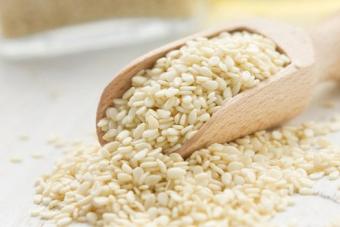At present, the incidence of chronic non-infectious human gastrointestinal diseases is high, and the intestinal microflora plays an important role in the development of these human diseases. There is a steady increase in the number of patients with overweight and obesity, accompanied not only by metabolic disorders, but also by microbiological ones.
Studies of complex probiotics "Kurungovit" and "Kurungovit GIT" in the correction of disorders of the gastrointestinal tract and metabolic disorders in patients with non-communicable human diseases were carried out. What areas have been explored?
Norm of microflora
Normal human microflora or microbiota is considered as a qualitative and quantitative ratio of microbial populations of individual organs and systems that maintain the biochemical, metabolic and immunological balance of the host organism.
Dysbacteriosis, what is it?
Intestinal dysbacteriosis(microecological disorders of the gastrointestinal tract), is considered as a clinical and laboratory syndrome that occurs in a number of diseases and clinical situations, including irritable bowel syndrome, which is characterized by a change in the qualitative and / or quantitative composition of the normoflora of a certain biotope, as well as translocation its various representatives to unusual biotopes, as well as metabolic and immune disorders, accompanied by clinical symptoms in some patients.
Varying severity is detected in 90% of the Russian population according to the Russian Academy of Medical Sciences. It arises from a variety of reasons:
- the nature of the diet;
- age;
- environmental conditions;
- with food allergies and allergic diseases;
- in patients receiving long-term antibiotic therapy;
- from exposure to radiation and cytostatic therapy;
- with gastroenterological pathology;
- in patients with metabolic syndrome.
There is a death of normal intestinal microflora, the range of potentially pathogenic microorganisms is expanding, the species and quantitative composition is changing.
Violation of the qualitative and quantitative ratio of the microbial landscape of the intestine towards an increase in potentially pathogenic and a sharp decrease in normal microflora is defined as dysbiosis.
Dysbiosis
It is a syndrome, always a secondary condition, leading to a change in the internal environment of the intestine, a violation of the digestive processes with a damaging effect on the intestinal wall, and after structural morphological changes, functional ones develop, manifested by a syndrome of impaired absorption (malabsorption) and a violation of the motor-evacuation function in the form of constipation or diarrhea.
irritable bowel syndrome
Irritable bowel syndrome is defined as a complex of functional bowel disorders lasting more than 12 weeks in the past year, including abdominal pain that improves after defecation, a variety of intestinal disorders, including flatulence, diarrhea, constipation or their alternation, feeling of incomplete emptying bowel and imperative urge to defecate.
It should be pointed out that it is ubiquitous, from which about a billion people suffer around the globe.
Through dysbacteriosis, a pathological vicious circle is formed, which must be broken in order to prevent the progression of intestinal damage and its functions, successful treatment of the underlying disease and dictates the need to search for and include drugs in the complex of rehabilitation measures aimed at restoring normal intestinal microbiocenosis.
How can probiotics help?
The key elements of functional nutrition throughout the world are recognized multicomponent probiotics, which allow you to optimize digestion processes, eliminate gas formation in the intestines, helping to cleanse it, and normalize metabolism at the cellular level.
Their inclusion in the diet provides the body not only with energy and plastic material, but to a greater extent, affects the functional state of various organs and systems, ensuring health maintenance, mitigates the impact of adverse environmental factors, stress, reduces the risk of developing a number of socially significant diseases, etc. .d.
Public categories of functional food products are probiotic products, including those containing bifidobacteria and other lactic acid bacteria, dietary fiber. These include:
- "" (the bifido-stimulating effect of carrots is associated with the presence of pantothenate-containing compounds, they well stimulate the growth of lactobacilli)
- "Kurungovit GIT" (which includes ginger and dihydroquercetin).
For the first time, scientific evidence of the beneficial properties of lactic acid bacteria was obtained by the great Russian scientist, Nobel Prize winner I.I. Mechnikov at the beginning of the 20th century.
aim research was to study the effect of probiotics "Kurungovit" and "" in the correction of disorders of the gastrointestinal tract and metabolic disorders in patients with non-communicable human diseases, the assessment of their clinical and microbiological efficacy.
Read about the results in the next article.
Every day, each person is faced with a variety of aggressive substances that, under favorable circumstances, can attack the body and cause the development of a variety of health problems. The causative agents of various diseases can penetrate the skin, mucous membranes, organs of the respiratory system, etc. Sometimes they enter the body with food or water. In this case, a person may develop infections of the digestive system, the symptoms and treatment of which we will now discuss in a little more detail.
Infections of the digestive system can occur when not enough clean vegetables, berries or fruits are consumed. Also, such diseases can develop due to eating poor-quality foods or drinking contaminated water. The main environment for the vital activity of pathogenic bacteria is the intestines, respectively, doctors also classify the diseases caused by them as intestinal infections.
Symptoms of a digestive system infection
Manifestations of infections of the digestive tract largely depend on the type of pathogen. However, there are a number of common signs that may indicate their development: weakness, deterioration (disappearance) of appetite, as well as pain in the abdomen.
The influence of aggressive microorganisms in the digestive tract does not become noticeable immediately, it can take up to fifty hours before the first symptoms of the disease appear. But in most cases, they occur about twelve hours after the infection has occurred.
A slight malaise pretty soon gives way to severe pain in the abdomen. The patient is concerned about vomiting and frequent loose stools, the causes of which are all in the same activity of microorganisms. Infectious lesions are usually accompanied by fever and chills, excessive sweating and other manifestations of fever. Loss of consciousness may also occur.
These symptoms indicate the development of severe intoxication of the body, which is explained by the vital activity of pathogenic bacteria. The combination of frequent vomiting and loose stools quickly leads to dehydration, which, if not adequately corrected, can cause irreversible consequences (impaired kidney function and changes in the cardiovascular system). Severe dehydration can even be fatal, especially in children and the elderly.
The temperature during infections of the digestive tract can rise to 37C and above, but in some cases it remains normal (with cholera) or quickly normalizes (with staphylococcal lesions).
Many bacteria pose a threat to human life and health, therefore, with the listed symptoms, it is worth seeking doctor's help, especially if the stool is particularly watery or there is an admixture of blood in it.
Infections of the digestive system - treatment
Therapy of infectious lesions of the digestive tract is carried out in a stationary infectious diseases department. Sometimes doctors manage to quickly identify the pathogen that caused the ailment, but quite often the cause of the disease remains unknown.
With food poisoning, mandatory gastric lavage is carried out as in case of poisoning. Competent rehydration therapy (intravenous and / or oral) is carried out. For intravenous administration, Trisol, Quartasol or Chlosol solutions are used, in some cases colloidal solutions are used - Gemodez or Reopoliglyukin. With oral rehydration, preference is given to Regidron (instructions for the use of each drug before using it must be studied personally from the official annotation included in the package!).
Doctors can decide on taking measures to stop the diarrheal syndrome. For this purpose, Indamethacin is often used (for one, sometimes two days), this remedy also helps to eliminate cardiodynamic disorders that are often observed in infections of the digestive tract, especially with salmonellosis.
In parallel, the administration of calcium preparations in combination with vitamin D2 is often practiced, which also helps to reduce diarrhea.
Various sorbents also become the drugs of choice for infections of the digestive tract - the well-known activated carbon, Karbolen, Karbolong, Polypefan, Diosmectite, Attapulgite, etc.
To correct diarrhea, drugs from the opiate group, represented by Loperamide and Trimebutane, can also be used, and the use of atropine-containing antidiarrheals, Lispafen and Reasek, is also often practiced.
In especially severe cases, bismuth is used in large dosages to treat diarrhea.
Intestinal antiseptics (Nifuroxazid, Enterosediv, Intestopan, etc.) and antibacterial drugs (most often aminopenicillins, cephalosporins, monobactams, carbapenems, aminglycosides, etc.) can be used to directly eliminate the causative agent of digestive tract infections.
Patients with infections of the digestive tract are shown taking funds to normalize the intestinal flora. These include eubiotics and probiotics. The drugs of choice are most often Bifidumbacterin forte, Baktisuptil, Acipol, etc.
The choice of treatment regimen for infections of the digestive tract is carried out exclusively by a qualified specialist after assessing the patient's condition.
Folk remedies
Medicines based on herbs and improvised means can also contribute to the treatment of infections of the digestive tract, but they can be used only after consulting a doctor.
So patients with symptoms of infection will benefit from the plant St. John's wort. A tablespoon of its crushed raw materials should be brewed with a glass of boiled water only. Boil such a remedy in a water bath for half an hour, then strain and dilute with cool water to the initial volume. Take the finished medicine in a third of a glass immediately before a meal. Keep it in the refrigerator.
Causes of diseases of the digestive system
Each disease of the digestive system has its own specific causes, but among them are those that are characteristic of most diseases of the digestive system. All these reasons can be divided into external and internal.
The main ones are, of course, external causes. These, first of all, include food, liquids, medicines:
Unbalanced diet (lack or excess of proteins, fats, carbohydrates) irregular meals (every day at different times), frequent consumption of “aggressive” ingredients (spicy, salty, hot, etc.), the quality of the products themselves (various additives such as preservatives) - all these are the main causes of diseases of the stomach and intestines and often the only cause of such digestive disorders as constipation, diarrhea, increased gas formation and other digestive disorders.
From liquids, first of all, diseases of the digestive system can cause alcohol and its surrogates, carbonated and other drinks containing preservatives and dyes.
And, of course, drugs. Almost all of them, to one degree or another, have a negative effect on the gastric mucosa.
Also, external causes of diseases of the digestive system include microorganisms (viruses, bacteria and protozoa that cause specific and non-specific diseases), worms (flukes, tapeworms, roundworms), which come mainly with food or water.
Smoking, an independent cause of diseases of the stomach and intestines, is rare, but it, together with insufficient oral hygiene, causes diseases of the oral cavity (gingivitis, stomatitis, periodontal disease, lip cancer).
More external causes of diseases of the stomach and intestines include frequent stress, negative emotions, worries for any reason.
The internal causes of diseases of the digestive system include genetic ones - this is a predisposition (that is, the presence of a disease of the digestive system in previous generations), intrauterine development disorders (mutations in the genetic apparatus), autoimmune (when the body for one reason or another begins to attack its organs).
The main symptom in diseases of the digestive system is pain along the digestive tract. This symptom is present in almost every disease of the stomach or intestines, but depending on the disease it will have one or another character. By localization, pain can occur in the right (cholecystitis) or left hypochondrium, girdle (pancreatitis), without specific localization, along the esophagus, often the pain can radiate (give) between the shoulder blades (inflammation of the esophagus), to the region of the heart, etc. Pain can be constant aching or, conversely, at some point very strong (perforation of a stomach ulcer), and eventually disappear, appear on palpation, tapping (cholecystitis). May be associated with meals or not, or when taking a particular food (for example, fatty as in chronic pancreatitis or cholecystitis), or, conversely, when taking some food to pass (for example, dairy in hyperacid gastritis), or occur when you do not eat anything (gastric ulcer). In diseases of the rectum, pain may occur during the act of defecation.
In diseases of the stomach, a symptom such as dyspepsia is often encountered. It can be divided into upper and lower. The upper includes symptoms such as heartburn (a burning sensation behind the sternum or in the upper abdomen with gastritis), belching (sour in stomach diseases, bitter in gallbladder damage), nausea, vomiting (peptic ulcer), a feeling of fullness and pressure in the epigastric areas (with disorders of the evacuation function of the stomach), dysphagia (swallowing disorders in diseases of the esophagus), anorexia (loss of appetite).
Lower dyspepsia includes a feeling of fullness and fullness in the abdomen, flatulence (excessive accumulation of gases in the intestines in violation of the digestive processes), diarrhea (infectious diseases), constipation (irritable bowel syndrome).
Other symptoms include a change in the color of the stool (discoloration in hepatitis, melena - tarry stools in gastric bleeding, "raspberry jelly" in amoebiasis, green in salmonellosis, scarlet blood in the feces).
There are also various changes on the skin, as manifestations of symptoms of various diseases of the digestive system (rash - infectious diseases, spider veins and skin color changes in liver diseases).
Diagnosis of diseases of the digestive system
Prevention of diseases of the stomach and intestines.
The main and most important prevention of diseases of the digestive system, and not only them, is maintaining a healthy lifestyle. This includes the rejection of bad habits (smoking, alcohol, etc.), regular physical education, exclusion of physical inactivity (lead a mobile lifestyle), adherence to work and rest regimes, good sleep, and more. It is very important to have a complete, balanced, regular diet, which ensures the intake of the necessary substances (proteins, fats, carbohydrates, minerals, trace elements, vitamins), monitoring the body mass index.
Also, preventive measures include annual medical examinations, even if nothing bothers you. After 40 years, it is recommended to conduct an ultrasound examination of the abdominal organs and esophagogastroduodenoscopy annually. And in no case should you start the disease, if symptoms appear, consult a doctor, and not self-medicate or only traditional medicine.
Compliance with these measures will help to avoid or timely identify and promptly begin treatment of diseases not only of the digestive system, but of the body as a whole.
Nutrition in diseases of the stomach and intestines.
Nutrition for diseases of the digestive system should be special. In this regard, in our country, at one time, the Russian Academy of Medical Sciences developed special diets that are suitable not only for diseases of the digestive system, but also for other systems too (diets are indicated in articles on the treatment of certain diseases). A specially selected diet is necessary in the treatment of diseases of the digestive system and is the key to successful treatment.
If normal enteral nutrition is not possible, parenteral nutrition is prescribed, that is, when the substances necessary for the body enter the blood immediately, bypassing the digestive system. Indications for the appointment of this food are: complete esophageal dysphagia, intestinal obstruction, acute pancreatitis and a number of other diseases. The main ingredients of parenteral nutrition are amino acids (polyamine, aminofusin), fats (lipofundin), carbohydrates (glucose solutions). Electrolytes and vitamins are also introduced, taking into account the daily needs of the body.
Diseases of the digestive system include:
Diseases of the oral cavity, salivary glands and jaws
Diseases of the esophagus, stomach and duodenum
Diseases of the appendix [vermiform appendix]
Hernias
Noninfectious enteritis and colitis
Other bowel diseases
Diseases of the peritoneum
Liver disease
Diseases of the gallbladder, biliary tract and pancreas
Other diseases of the digestive system
More about diseases of the digestive system:
One of the most dangerous diseases transmitted through the digestive system is botulism. The disease manifests itself several hours after the botulinum bacterium enters the body and begins with vomiting, headaches and abdominal pain, but the temperature usually does not rise. The disease develops rapidly and within a day can lead to visual impairment, muscle paralysis and death. Botulinum bacterium lives in the soil and reproduces in an oxygen-free environment (bacterial spores are very resistant to various environmental factors). The botulism bacterium enters the human body with vegetables, mushrooms, poor-quality canned food.
Another dangerous disease is salmonellosis (it is caused by a bacterium - salmonella). Infection with salmonellosis occurs through products - eggs, milk, meat. With this disease, frequent stools (diarrhea) are observed, the patient quickly weakens and may die. The disease begins with high fever, vomiting, abdominal pain.
Another infectious disease is very dangerous - cholera, caused by a bacterium - cholera vibrio. Infection with cholera occurs when drinking or swallowing water when bathing in polluted water bodies, as well as when washing dishes with contaminated water. Infection can occur through the consumption of food contaminated during storage or washing, as well as through contaminated hands. In addition, V. cholerae can be carried by flies.
Helminthic diseases (helminthiases)
The causes of helminthic diseases are non-compliance with hygiene rules and eating food contaminated with worm eggs.
Ascaris- a roundworm that lives in the human intestine, its length reaches 35 cm. Ascaris larvae develop in the intestine and enter the liver, heart, trachea, larynx, pharynx through the hepatic vein, and then they return to the intestine, where they turn into adults. Ascaris can cause abdominal pain, vomiting, and even appendicitis. Roundworm larvae, getting into the lungs, can cause pneumonia.
Flatworm larvae - porcine tapeworm (as well as bovine tapeworm) can develop in human muscles, causing serious illness.
Worms have a very high fecundity (for example, one roundworm female can lay up to 200,000 eggs per day, which, leaving the feces in the external environment, can remain in the soil for several years).
Diseases of the stomach and duodenum
Gastritis- inflammation of the gastric mucosa, which, for various reasons (bacteria, mental trauma, improper medication, etc.), cannot cope with the effects of hydrochloric acid and pepsin in the stomach.

If gastritis is not treated in time, then a stomach ulcer may occur (damage to the mucous membrane, which in the most severe cases can lead to perforation - a through hole in the wall of the stomach). Often there is also a duodenal ulcer (moreover, in that part of it that is adjacent to the stomach).
Diseases of the liver and gallbladder
The liver often suffers from poor food hygiene. One of the reasons for the death of its cells may be inflammation of the liver - hepatitis (this is the general name for inflammatory liver diseases that arise from various causes and require different treatment). One of the signs of hepatitis is jaundice - yellowing of the patient's skin, caused by a violation of the barrier function of the liver. Often hepatitis is viral in nature. The causative agent of the disease is a virus resistant to environmental conditions, pathogenic only for humans. If the cause of the destruction of the liver is eliminated in time, then the part of the organ that remains intact can regenerate.

Under certain conditions, gallstones are formed from the substances that make up bile in the gallbladder. Stones irritate the walls of the gallbladder, leading to their inflammation - acute cholecystitis. If the stones block the excretory duct of the pancreas, then inflammation develops in it - pancreatitis. If gallstones cause recurring pain attacks, they are removed (sometimes the entire gallbladder is removed).
Prevention of diseases of the stomach and intestines.
The main and most important prevention of diseases of the digestive system, and not only them, is maintaining a healthy lifestyle. This includes the rejection of bad habits (smoking, alcohol, etc.), regular physical education, exclusion of physical inactivity (lead a mobile lifestyle), adherence to work and rest regimes, good sleep, and more. It is very important to have a complete, balanced, regular diet, which ensures the intake of the necessary substances (proteins, fats, carbohydrates, minerals, trace elements, vitamins), monitoring the body mass index.

Also, preventive measures include annual medical examinations, even if nothing bothers you. After 40 years, it is recommended to conduct an ultrasound examination of the abdominal organs and esophagogastroduodenoscopy annually. And in no case should you start the disease, if symptoms appear, consult a doctor, and not self-medicate or only traditional medicine.
Compliance with these measures will help to avoid or timely identify and promptly begin treatment of diseases not only of the digestive system, but of the body as a whole.
Nutrition in diseases of the stomach and intestines.
Nutrition for diseases of the digestive system should be special. In this regard, in our country, at one time, the Russian Academy of Medical Sciences developed special diets that are suitable not only for diseases of the digestive system, but also for other systems too (diets are indicated in articles on the treatment of certain diseases). A specially selected diet is necessary in the treatment of diseases of the digestive system and is the key to successful treatment.
If normal enteral nutrition is not possible, parenteral nutrition is prescribed, that is, when the substances necessary for the body enter the blood immediately, bypassing the digestive system. Indications for the appointment of this food are: complete esophageal dysphagia, intestinal obstruction, acute pancreatitis and a number of other diseases. The main ingredients of parenteral nutrition are amino acids (polyamine, aminofusin), fats (lipofundin), carbohydrates (glucose solutions). Electrolytes and vitamins are also introduced, taking into account the daily needs of the body.





